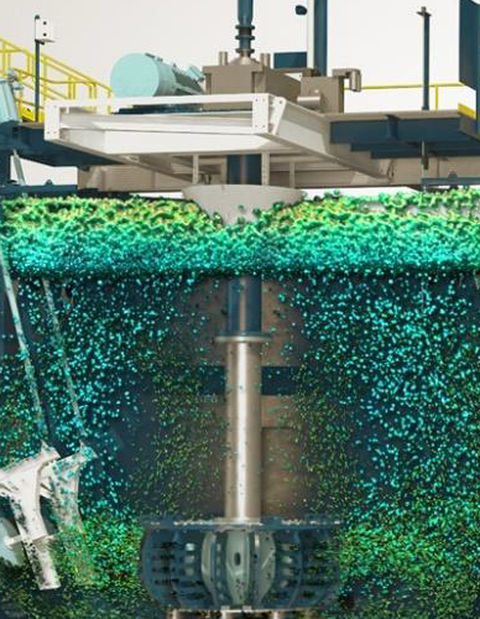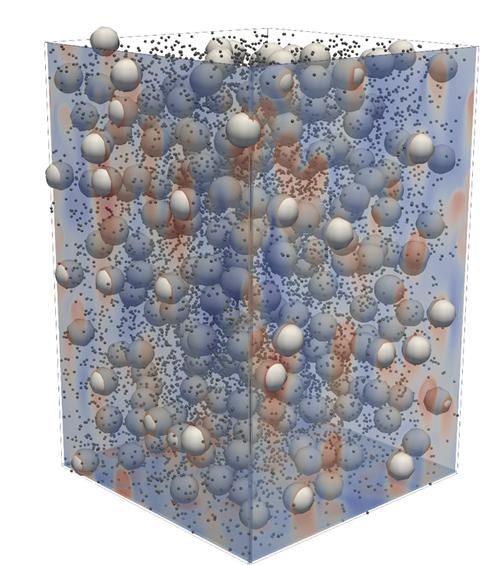FlotSim
The transition to renewable energies requires a vast amount of minerals and raw materials, such as copper, nickel, or titanium, for example. However, Germany and the European Union have a strong dependency on other countries such as Russia and China on these materials.
Froth flotation is an integral process to separate valuable minerals from gangue based on the differences in hydrophobicity of the minerals. Finley ground ore is dispersed in water. Small air bubbles are introduced to which the hydrophobic mineral particles attach and are transport to an upper froth layer where they can be recovered. The hydrophilic gangue settles to the bottom. The flotation process involves extremely complex hydrodynamics and surface chemistry which is not fully understood yet.
Within the framework of the EU-funded FlotSim project, a European Industrial Doctorate programme (EID) TU Dresden and Denmark-based engineering company FLSmidth will work on new flotation cell solutions to drastically improve material recovery rates. The aim is to investigate and model the flotation process and the interaction between particles, air-bubble, and turbulent water flows from nanoscale to pilot-scale, so that the mining industry can operate more efficiently and environmentally friendly.
Five early-stage researchers are working together on micro- and macro processes in flotation. At the Chair of Fluid Mechanics at TU Dresden the collision behaviour between particles and bubbles in turbulent flow is investigated. These collisions cannot be measured in highly loaded flows, so that very detailed numerical simulations are performed to gain insight into the local conditions of the fluid-particle-bubble interaction. The results will be condensed to model terms subsequently to be used in statistical CFD models of the entire flotation cell. The goal is to increase the efficiency of the process especially for the flotation of small particles, so that the target materials can be obtained more efficiently and environmentally friendly.
| Cooperation |
Chair of Transport Processes at Interfaces, TU Dresden |
| Funding | European Union, Horizon 2020 Project 955805 FlotSim |
| Contact |
M.Sc. Benedikt Tiedemann |


